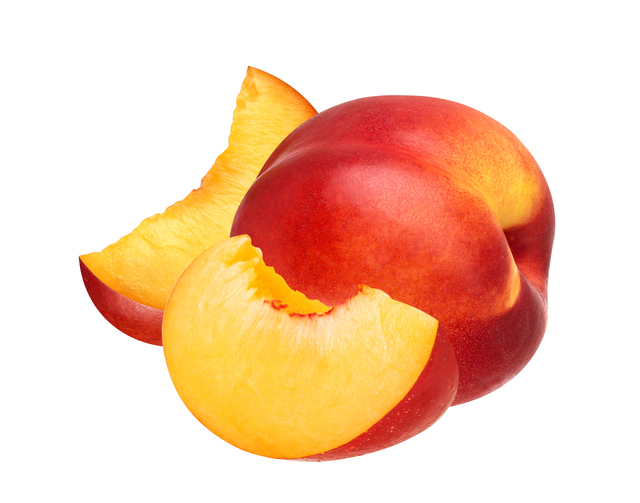Can Dogs Eat Peaches? Exploring the Facts for Your Furry Friend
As a dog owner, enthusiast, and advisor, I understand the importance of providing a safe and healthy diet for our canine companions. Many dog owners are curious about whether certain human foods, such as peaches, are suitable for their furry friends. If you find yourself asking: “Can dogs eat peaches?”, keep on reading.
In this article, we will delve into the topic of whether dogs can eat peaches, considering the potential benefits, risks, and guidelines for incorporating peaches into their diet.
Understanding Peaches
Peaches are not only delicious but also packed with nutrients that benefit humans. They are a juicy and refreshing fruit with a sweet flavor. Before we explore their suitability for dogs, let’s understand the nutritional composition of peaches.
Can Dogs Safely Consume Peaches?
When it comes to feeding peaches to dogs, the answer is generally yes, but with important considerations. Dogs can safely consume peaches, but moderation and proper preparation are key.
Nutritional Composition of Peaches
Peaches are low in calories and a good source of vitamins, minerals, and dietary fiber. They contain essential nutrients such as vitamin A, vitamin C, vitamin E, potassium, and dietary fiber. The high water content in peaches helps with hydration and aids in digestion.
General Safety Considerations
While peaches are not toxic to dogs, it is crucial to take certain precautions. Always remove the pit, as it poses a choking hazard and contains small amounts of cyanide. Cyanide is harmless in small quantities but can be toxic if ingested in large amounts. Additionally, ensure that the peach is ripe and free from mold or any added sugars or seasonings.
Potential Risks and Concerns
We’ll cover this in more detail below. Some dogs may be allergic to peaches or exhibit sensitivities to certain fruits. Allergic reactions can manifest as itching, redness, digestive upset, or respiratory issues. If your dog has any known allergies or sensitivities, it is recommended to consult with a veterinarian before introducing peaches into their diet.
Health Benefits of Peaches for Dogs
Peaches offer several potential health benefits for dogs when fed in moderation and prepared correctly. Let’s explore some of these benefits:
1) Essential Vitamins and Minerals:
Peaches are packed with essential vitamins and minerals that contribute to a dog’s overall health. They are a good source of vitamin A, which is crucial for maintaining healthy vision, supporting immune function, and promoting growth and development. Peaches also contain vitamin C, an important antioxidant that boosts the immune system, aids in collagen production, and helps protect the body against harmful free radicals. Additionally, peaches provide potassium, a mineral that helps maintain proper heart and muscle function, and dietary fiber, which aids in digestion.
2) Hydration Support:
Peaches have a high water content, making them a hydrating treat for dogs, especially during hot weather or physical activity. Proper hydration is essential for maintaining optimal body temperature, supporting organ function, and promoting overall well-being. Offering small slices of fresh peach can help keep your dog hydrated and refreshed.
3) Digestive Health:
The dietary fiber present in peaches can benefit a dog’s digestive system. Fiber adds bulk to the stool, helping to regulate bowel movements and prevent constipation. It can also aid in the management of certain gastrointestinal disorders, such as diarrhea or irregularity. Including peaches as a part of a balanced diet can contribute to maintaining a healthy digestive tract in dogs.
4) Antioxidant Properties:
Peaches contain various antioxidants, including vitamin C and other phytochemicals, which help neutralize harmful free radicals in the body. These antioxidants play a crucial role in protecting cells from oxidative damage and reducing the risk of chronic diseases. By incorporating peaches into your dog’s diet, you can provide them with natural antioxidant support, promoting overall well-being and supporting their immune system.
5) Flavor and Variety:
Offering peaches as a treat or occasional addition to your dog’s diet can provide flavor and variety, making mealtime more enjoyable. The natural sweetness of peaches can entice picky eaters and add a touch of excitement to their meals. It’s important to note that while peaches can offer health benefits, they should never replace a nutritionally balanced dog food formulated specifically for their needs.
Risks and Precautions
While peaches can provide health benefits, it is important to be aware of potential risks and take necessary precautions when feeding them to dogs. Consider the following factors:
1) Allergic Reactions and Sensitivities:
Dogs, like humans, can develop allergies or sensitivities to certain foods, including peaches. Some dogs may exhibit signs of an allergic reaction, such as itching, redness, swelling, or digestive upset, after consuming peaches. It is important to observe your dog closely when introducing peaches for the first time or if they have a history of food allergies. If any allergic reactions occur, discontinue feeding peaches and consult with a veterinarian.
2) Pit and Choking Hazard:
The pit of a peach poses a choking hazard for dogs. It is important to always remove the pit completely before offering any peach slices to your dog. Peach pits also contain small amounts of cyanide, which can be toxic if ingested in large quantities. Accidental ingestion of a peach pit may require immediate veterinary attention.
3) Moderation in Feeding:
While peaches can offer health benefits, it is crucial to feed them in moderation. Peaches should be considered as an occasional treat or part of a balanced meal, representing only a small portion of a dog’s overall diet. Excessive consumption of peaches or any fruit can lead to digestive upset, such as diarrhea or an imbalance in their diet. It is important to maintain a balanced diet that meets all of your dog’s nutritional needs.
4) Proper Preparation:
When offering peaches to your dog, ensure that they are ripe, fresh, and free from any mold or rot. Wash the peach thoroughly to remove any dirt or residue. Cut the peach into small, bite-sized pieces to make it easier for your dog to chew and digest. Avoid adding any additional sugars, seasonings, or preservatives, as these can be harmful to dogs.
5) Individual Considerations:
Each dog is unique, and individual factors such as age, breed, size, and overall health should be taken into account.
When it comes to answering the question “Can dogs eat peaches?”, it’s important to keep in mind some dogs may have specific dietary restrictions or health conditions that require them to avoid certain foods, including peaches. It is always recommended to consult with a veterinarian before introducing new foods into your dog’s diet to ensure they are suitable for your furry friend.
By being aware of these risks and taking necessary precautions, you can ensure the well-being and safety of your dog when incorporating peaches into their diet. Remember, moderation, proper preparation, and individual considerations are key to providing a balanced and healthy diet for your canine companion.
Preparing Peaches for Dogs
When preparing peaches for your dog, it is important to follow proper guidelines to ensure their safety and enjoyment. Consider the following tips:
1) Choose Ripe and Fresh Peaches:
Select ripe peaches that are firm but slightly soft to the touch. Avoid peaches that are overly ripe, mushy, or have any signs of mold or rot. Fresh and high-quality peaches will provide the best taste and nutritional benefits for your dog.
2) Wash Thoroughly:
Before preparing peaches for your dog, wash them thoroughly under running water. This helps remove any dirt, pesticides, or residues that may be present on the surface of the fruit. Ensure the peach is clean and free from any harmful substances before serving it to your dog.
3) Remove the Pit:
The pit of a peach should never be given to your dog, as it poses a choking hazard and contains small amounts of cyanide. To safely remove the pit, cut the peach in half along the natural groove, and then carefully twist the two halves apart. Use a spoon or knife to scoop out the pit from the center of each half. Ensure that no pit remains before proceeding to serve the peach to your dog.
4) Cut into Bite-sized Pieces:
Once the pit is removed, cut the peach into small, bite-sized pieces. This makes it easier for your dog to chew and digest. Avoid giving large chunks of peach, as they may be difficult for your dog to handle or pose a choking risk. By providing appropriately sized pieces, you can ensure your dog can enjoy the peach safely.
5) Serve Fresh:
Peaches are best served fresh to preserve their natural flavor and nutritional value. Avoid cooking or baking peaches for dogs, as certain cooking methods or added ingredients may not be suitable for their digestion. Serving fresh, raw peaches allows your dog to enjoy the fruit in its most natural and beneficial form.
6) Feeding Amount and Frequency:
Peaches should be given to dogs in moderation. Consider your dog’s size, weight, and overall health when determining the appropriate serving size. As a general guideline, offer a few small pieces of fresh peach as an occasional treat or mix them into your dog’s regular food. Remember to account for the peach’s calorie content and adjust the portion size accordingly to maintain a balanced diet for your dog.
Alternatives to Peaches for Dogs
If your dog has specific dietary restrictions or if you’re unsure about feeding peaches, there are alternative fruits and treats to consider. Some safe and nutritious alternatives include sliced apples, sliced watermelon (without seeds), or frozen berries. Always introduce new foods gradually and observe your dog’s response.
Consulting with a Veterinarian
Whether you are wondering can dogs eat peaches or wondering about adding any new food into your dog’s diet, it is always advisable to consult with a veterinarian. A veterinarian can provide personalized guidance based on your dog’s specific health needs, dietary requirements, and any known allergies or sensitivities. They can assess your dog’s overall health and advise you on whether peaches or any specific food is appropriate for your furry friend.
Conclusion
In conclusion to the question “Can dogs eat peaches?”: Peaches can be safe for dogs when properly prepared and fed in moderation. They offer potential health benefits such as hydrating and supporting digestion, providing essential vitamins and antioxidants.
However, it is important to consider individual factors such as allergies, sensitivities, and the removal of pits. Always prioritize your dog’s safety and well-being by consulting with a veterinarian before introducing peaches or any new food into their diet.
FAQs
Can all dogs eat peaches?
While most dogs can safely consume peaches, individual sensitivities and allergies can vary. It’s important to monitor your dog’s response and consult with a veterinarian if you have concerns.
Can dogs eat peach pits?
No, dogs should never eat peach pits. Peach pits can pose a choking hazard and contain small amounts of cyanide, which can be toxic if ingested in large quantities.
Can I feed my dog canned peaches?
It’s best to avoid canned peaches for dogs due to the added sugars and preservatives. Fresh, ripe peaches are a healthier option.
Are there alternative fruits that are safe for dogs?
Yes, there are several fruits that are safe for dogs to consume, such as sliced apples, blueberries, strawberries, or watermelon (without seeds). Always introduce new fruits gradually and monitor your dog’s response.
How much peach can I feed my dog?
The serving size of peach depends on your dog’s size, weight, and overall health. Offer small pieces of fresh peach as an occasional treat or part of a balanced meal, ensuring it represents only a small portion of their overall diet.
Additional Dog Diet Info:
We cover additional vegetables and foods in detail:




